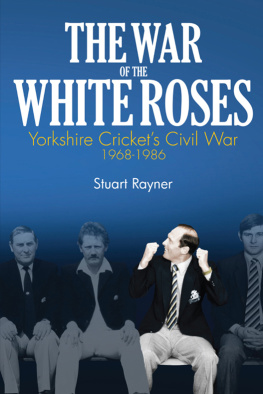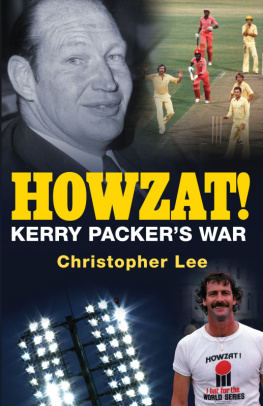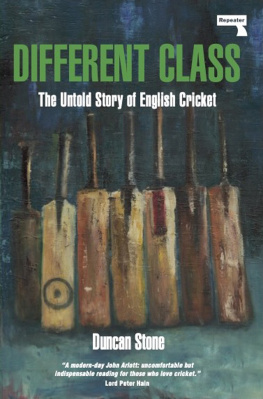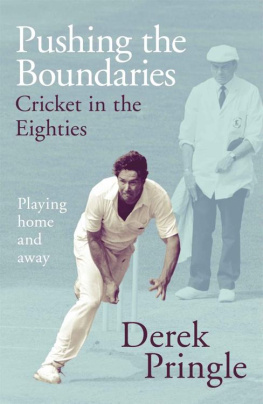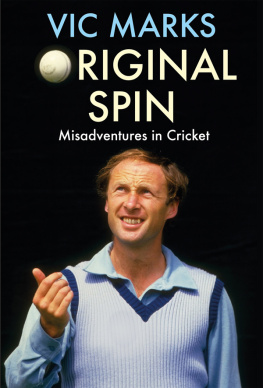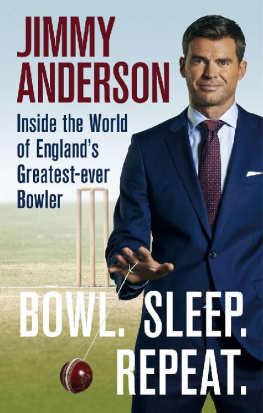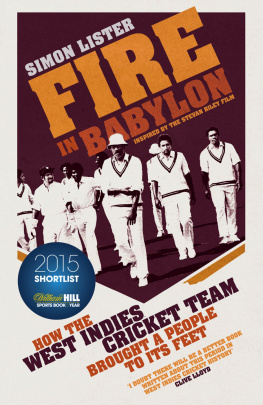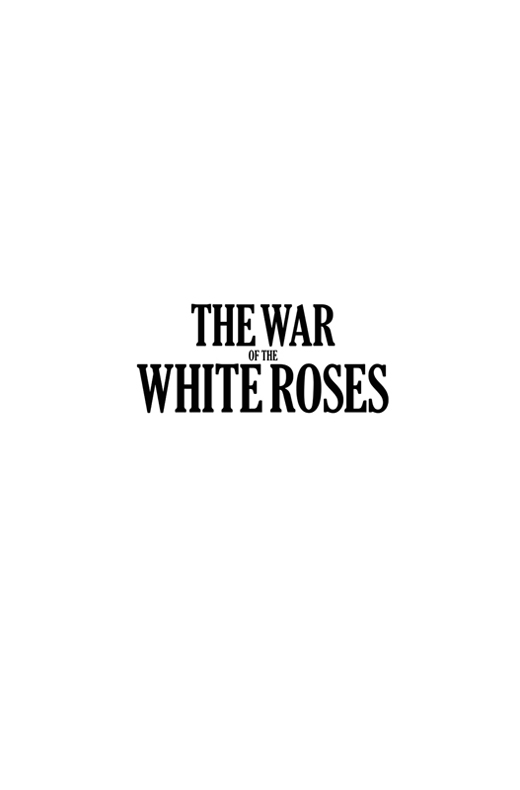First published by Pitch Publishing, 2016
Pitch Publishing
A2 Yeoman Gate
Yeoman Way
Durrington
BN13 3QZ
www.pitchpublishing.co.uk
Stuart Rayner, 2016
All rights reserved under International and Pan-American Copyright Conventions. By payment of the required fees, you have been granted the non-exclusive, non-transferable right to access and read the text of this e-book on-screen. No part of this text may be reproduced, transmitted, downloaded, decompiled, reverse-engineered, or stored in or introduced into any information storage and retrieval system, in any form or by any means, whether electronic or mechanical, now known or hereinafter invented, without the express written permission of the Publisher.
A CIP catalogue record is available for this book from the British Library
Print ISBN 978-1-78531-116-1
eBook ISBN: 978-1-78531-175-8
--
Ebook Conversion by www.eBookPartnership.com
Contents
Introduction and Acknowledgements
I WAS there the day Yorkshire won back-to-back County Championship titles for the first time since 1968. On 9 September 2015, the White Rose players and their travelling supporters were at Lords for the second day of their Championship game against Middlesex. I was at Trent Bridge in my capacity as a sports writer for The Journal, Newcastle Chronicle and Sunday Sun, covering Durhams match against Nottinghamshire. When Graham Onions bowled Harry Gurney at 3.07pm to dismiss the hosts for 204, Yorkshires points tally became unassailable and their 32nd title was confirmed.
It had been on the cards for some time. Despite losing six players five of them Yorkshire-born to England over the course of the season, the trophy was secured with two and a half matches to spare. After nearly half a century Yorkshire could finally claim to be the dominant force in English cricket again. Rather than heralding the start of a long-term revival, the 2001 title had been followed by relegation the next summer and four of the next ten seasons were spent in the bottom division, but this time Yorkshire had emphatically backed up their success with a record-breaking year.
The safe vantage point of such a happy time for Yorkshire County Cricket Club seems to me to be a good place from which to look back at the darkest period in its history. Many of the former players, supporters and committeemen I approached for interviews told me they did not want to rake over the past when things were finally going so well for the club again. I understand and respect their attitude, but firmly believe the maxim that those who do not learn from history are doomed to repeat it. Those lessons are as important as they have ever been now the team is doing so well. The story told in this book starts in 1968 because the seeds of the discord which ripped a proud club apart were sown in the complacency and hubris inadvertently created by what many believe was its greatest team. Yorkshire are now strong enough and the events distant enough to look back on them objectively.
The club which paraded the famous County Championship trophy around Lords in 2015 is far removed from the insular, conservative institution run by an unwieldy committee which collected the same silverware at Hull in 1968, and all the better suited to the 21st century for it. This book is an attempt to explain what happened in the bad times between 1968 and 1986 which were almost as important in framing the identity of the modern-day club as the many glory years preceding them. The point of the exercise is not to apportion blame because I firmly believe almost everything those involved did during this period was done because they felt it was the right thing for Yorkshire, even if to others at the time and those of us with the benefit of hindsight it is clear that was not always the case. Other clubs could probably have avoided much of the bitter in-fighting of the 1970s and 80s and settled into a gentle, humdrum existence but quietly making up the numbers is not what Yorkshire cricket stands for.
My interest in this period was really piqued in December 2013 by a book that had been gathering dust on my shelves for some time. My passion for Yorkshire cricket comes from my mum, but it was my dad who unwittingly set me on the path towards writing this book when he bought me a second-hand copy of David Bairstows diary of Yorkshires 1984 season. Finally getting around to reading it made me interested to know more about the political upheaval Bairstow and his team-mates had to contend with. It soon became apparent there was no definitive book on that period of Yorkshires history written from a neutral perspective there were some good ones from the viewpoint of those, like Bairstow, who were heavily (and in his case reluctantly) involved, and wider histories of the club or the game, or biographies of Geoffrey Boycott which mentioned it. Perhaps it was hubris of my own, but I decided to write a book myself. Now living outside the county, and having been born in it halfway through the period, gives me a certain distance which I hope makes for a fair account of a divisive period in the clubs history.
I would like to take this opportunity to thank all those who have helped or encouraged me along the way, from my dad thinking of me when he came across Bairstows book in a second-hand bookstall to those who proofread chapters, and too many in between to mention you all. If you were not already, just by reading you have become one of those people.
Special thanks must go to David Warner, widely regarded as the fairest journalist covering Yorkshire at that time, and now a vice-president of the club. The extraordinary collection of cuttings he lent me was of great help and I hope to see them again one day in the club museum. The advice offered by David and the Yorkshire Posts excellent cricket correspondent Chris Waters, who wrote the foreword, and many others whose knowledge of Yorkshire County Cricket Club is far greater than mine will ever be has been gratefully received.
Thanks also to Paul Cunningham, Richard Neale and Rachel Wearmouth for reading drafts from their different perspectives and suggesting improvements, Mick Pope of Adelphi Archive and Penny Coleman of The Gazette in Middlesbrough for their help in obtaining photographs, and the team at Pitch Publishing for transforming it all into the book you are reading now. I am indebted to my employers, ncjMedia, for allowing me time to finish writing the book, and the staff at the British Library (the Boston Spa and London branches) and those in Leeds, Harrogate, Northallerton and Scarborough who helped as I ploughed through microfilm, microfiche and old newspapers in my research.
While others were understandably reticent, Jack Bond, Mike Bore, Geoffrey Boycott, Matthew Caswell, Geoff Cook, Andrew Dalton, Sidney Fielden, David Hall, George Hepworth, Richard Hutton, Ashley Metcalfe, Martyn Moxon, Chris Old, Kevin Sharp, Jack Simmons, Bryan Stott, Julian Vallance, Alan Walker, Neil Whitaker, Russell Devy and Ted Lester were kind enough to share their very different experiences of what, for many of them, was a difficult time. I hope I have represented their views fairly. The last two names on the list sadly died during the writing of this book, and it is dedicated to the memories of Russell and Ted. I hope I have done them justice in producing something you enjoy reading as much as I have enjoyed writing it.

